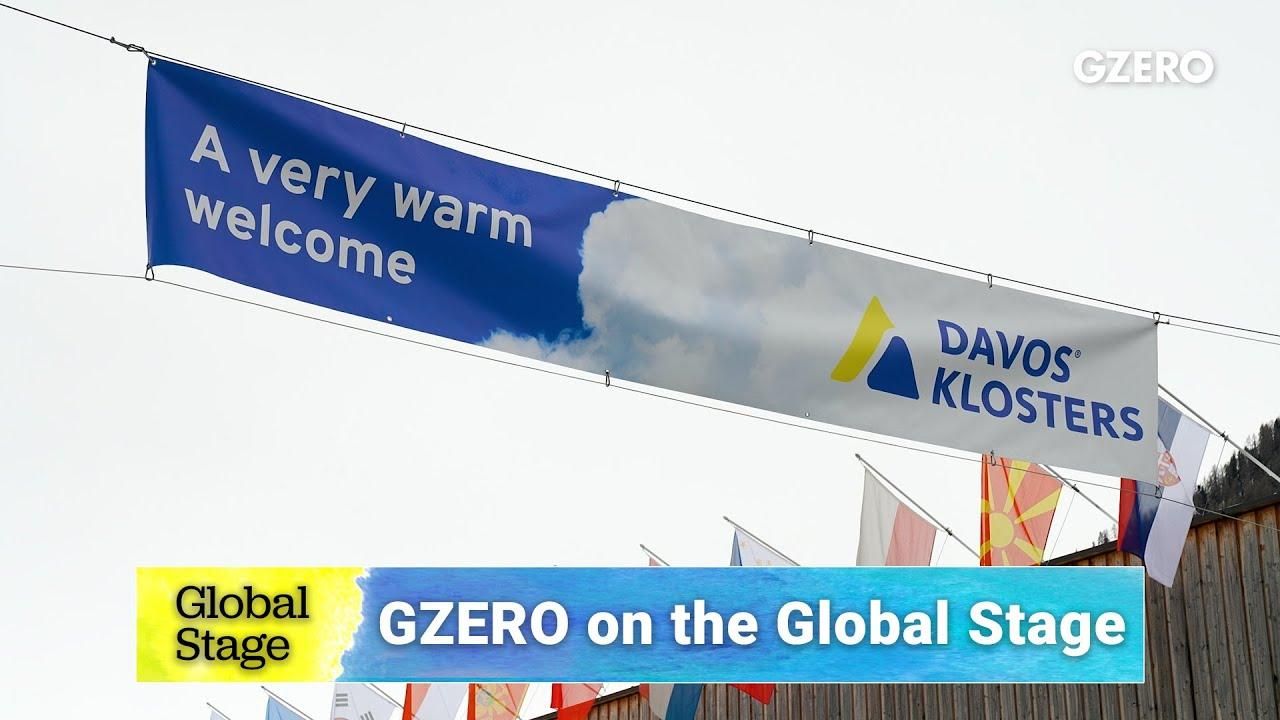
Since its launch in the fall of 2020, GZERO Media’s Global Stage series has been bringing our audience in-depth conversations and coverage from the biggest gatherings in the world—including the UN General Assembly, the Munich Security Conference, and the World Bank/IMF annual meetings.
And last week we were in Davos, Switzerland, for the 53rd World Economic Forum. Perhaps you had a chance to check out our livestream on the risks and rewards of AI, or some of Ian Bremmer’s conversations with newsmakers like Finland’s former Prime Minister Alexander Stubb and UN High Commissioner for Human Rights Volker Türk. But we also wanted to share with you a behind-the-scenes look at a cool workspace that quickly became the go-to gathering spot for everyone from members of the media to heads of state.
Our partner and sponsor for the Global Stage series, Microsoft, hosted a diverse array of guests throughout the week at their café, located on the Promenade directly across from the Congress Center where the mainstage Forum events take place.
Microsoft’s VP of Global Public Affairs, Steve Clayton, took us on a tour of the facility. Fun fact: the rest of the year the café is actually a bowling alley. But for one week in January, it is transformed into an international salon for conversations ranging from digital inclusion to cybersecurity to the power of the metaverse.